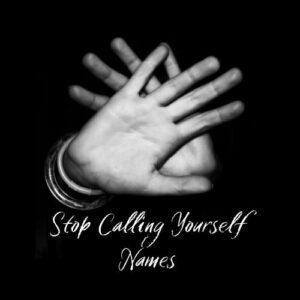1.) Polite Sorry: “Sorry for the delay in getting back to you.”
This is the most common type of sorry offered to others as an acknowledgement of a minor transgression or violation of a social norm that happens as part of daily life. This kind of sorry is exchanged with strangers and friends alike as an act of courtesy.
2.) Scornful Sorry – “I’m sorry, OK?!”
This kind of dismissive apology often emerges from the discomfort felt when facing our own wrongdoing. It can feel shameful to see ourselves as less than perfect and in an effort to turn away from ourselves, we instead project our self-rejection onto others, blaming them for “making us feel bad” by withholding forgiveness.
3.) Feel Sorry for Me Sorry – “OMG, I’m Sooooo sorry! I feel horrible, I’ll never forgive myself!”
Similar to the scornful sorry, this reaction reflects an intolerance of our own flaws. The difference here is that the blame is directed towards ourselves. The attachment to an idealized version of ourselves can be fierce and violating our high self-expectations can feel devastating. As such, we’re unable to reconcile the “all-good me” we want to believe we are with the me who has made an interpersonal error. The psychological pain of this dilemma can make us frantic to restore our positive self-assessment and convinced the only way to do this is by getting the other person to let us off the hook. In doing so become so preoccupied with getting out of our own pain that we’re unable to make space for the other person’s experience.
4.) Repairing Sorry – “I made a mistake and you’re upset and maybe angry with me and for good reason. I care so much about you and I’m upset with myself for having done this. I want to know how this has affected your and understand what you’re feeling.”
The word sorry is not necessary here because the focus is less on apologizing and more on acknowledging. With a repairing sorry you’re able to tolerate the distress of having made an error without having to defend or hate yourself. This tolerance allows you to acknowledge the transgression as the other person experienced it using feeling words. You let the other person know you understand how your behavior may have landed for them and can accept their reality as valid, even if differs from your own. You also acknowledge your own feelings and express the value of the relationship and importance to you of repairing the connection. This is the bravest kind of of apology because it requires a rare blend of emotional maturity and humility. It also requires practice and a depth of care for yourself and the other person.



